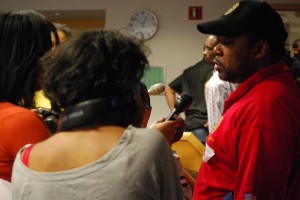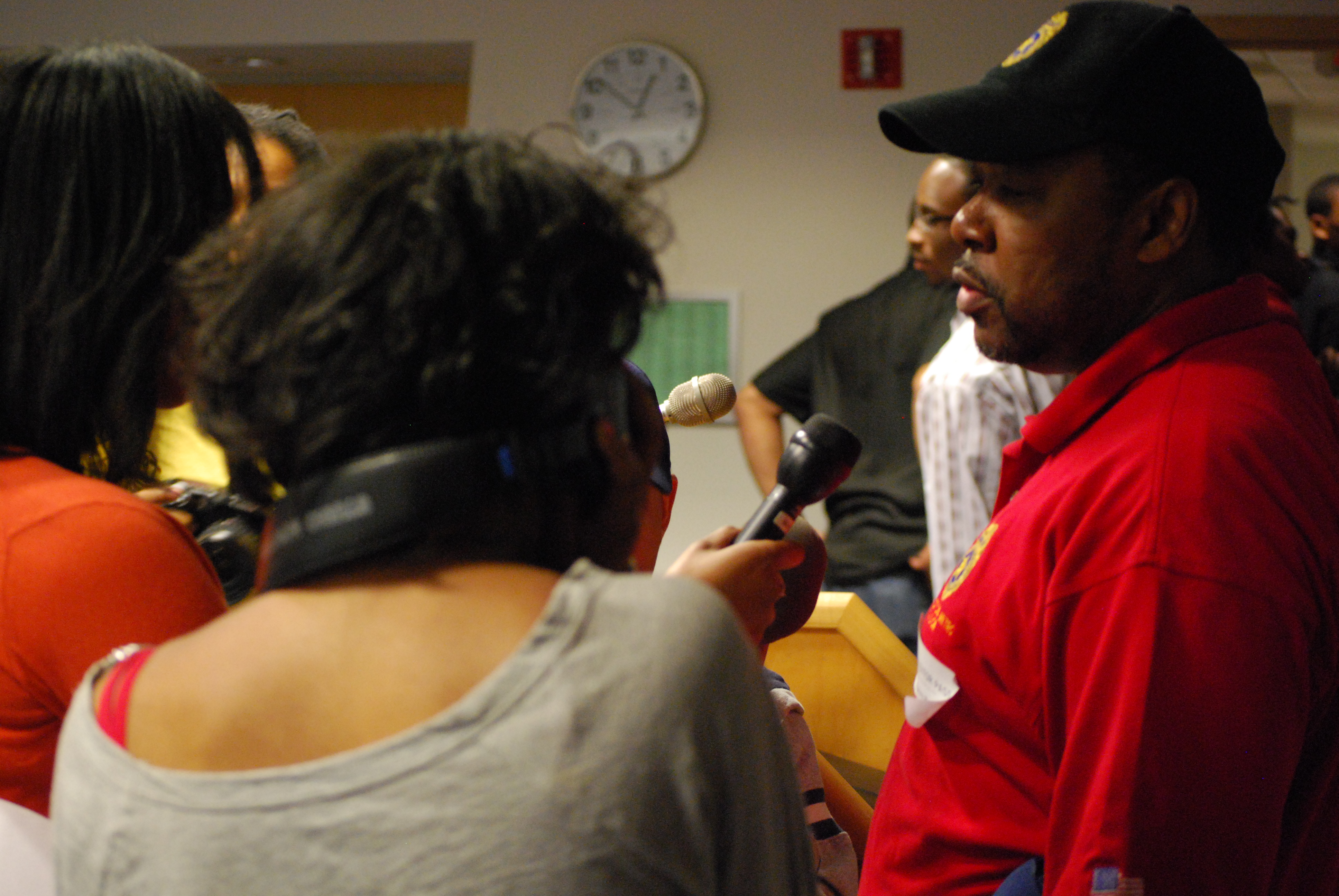
By Briana Savage
UJW Staff
WASHINGTON — Federal law enforcement agencies function as a family, working hand in hand to lead and assist in joint federal and state investigations.
And communication among those agencies is especially key to catching criminals who fraudulently use the U.S. postal system, according to Cpl. Humphrey Rutherford.
“This relationship is like a family,” said Cpl. Rutherford, a supervising officer and instructor from the U.S. Postal Inspection Service (USPIS).
He talked about his career and his agency at a recent press conference at National Public Radio staffed by student journalists.
Rutherford said that the U.S. Postal Service is assisted by organizations such as the Federal Bureau of Investigation (FBI), the Central Intelligence Agency (CIA) and metro police departments to solve crimes that include everything from fraud to anthrax to homeland security. He added that federal agencies are given the most authority within that relationship followed by states, counties, cities, and organizations.
The U.S. Justice Department generally determines which of the many law enforcement agencies takes control of which crimes, Rutherford said.
He noted that the Sept. 11 terrorist attacks tested the interdependency and liability of all federal agencies.
Rutherford said that the national crisis required attention from so many jurisdictions that the agencies had no choice but to work together toward a common goal.
“It is important that everyone just does their job” in situations like this, said Rutherford, 52.
Rutherford has been with the USPIS for 14 years, and today he trains other officers.
Rutherford said his officers collaborate with other agencies to make sure criminals receive the harshest penalties for their crimes within the appropriate state and jurisdiction. That’s because the penalties for certain crimes differ from state to state.
For example, if an officer witnessed a crime that was not committed in his or her state, he or she would be willing to testify against the suspect.
“Every officer respects and acknowledges one another,” Rutherford said.
Officers often assist each other in making difficult arrests, he said. For instance, if an officer observed another officer struggling with an arrest on the side of the road, he or she would pull over as backup.
Hearing the words “I’m a cop” are the best words an officer can hear, Rutherford said, because they signify that help has arrived.


